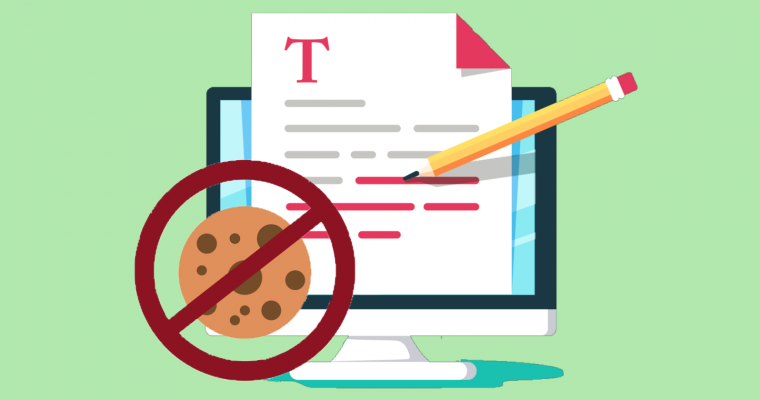How Brands Can Use Content as the New Cookie in SEO
- Aditya Singh
- May 9, 2021
- 4 min read

Loosing cookies may impact SEO. Here's how content as the new cookie might help brands better understand user needs in a cookieless world.
The move away from cookie-based tracking is a response to increasing public concern around privacy.
There's been much discussion of how search marketers and PPC professionals can prepare for a cookieless web.
But an important question remains: How will the shift from cookies impact SEO? In this post, we'll explore this change through the lenses of:
Personalization in the SERPs
The importance of first-party data
The role of Google Search Console
Information vs. Transactional Content
Measurement
Let's start with what a cookie is and why brands are using them in the first place.
What is a Cookie?
A cookie is a small text file saved on your device when you visit a website. It stores information about your preferences and other data.
From a consumer perspective, cookies help websites operate more efficiently. They do things like remember passwords and save the items we put into our shopping carts.
On the brand side, they help us understand how visitors use different parts of a website so we can improve the experience for future visitors.
But cookies also help advertisers follow consumers around the web- sometimes far longer and wider than those consumer realize.
These are the "bad" cookies that have resulted in public concern.
The aim of the EU's GDPR, the California Consumer Privacy Act (CCPA) , and similar laws is to give consumers visibility into how cookies are being used on websites- especially those that could be classified as "bad".
Why Do Companies Use Cookies?
In addition to preserving items in your shopping basket, cookies can do helpful things like preserve your login details for future visits, offer personalized discount codes (like cart abandonment emails) or surface recommended content.
"Articles you may be interested in.." and "Products you might like.." are all generated by cookies, for example.
Whether cookies are good or bad truly depends on how each brand uses them.
When a site drops a cookie, it follows you around the web and shows content from sites you have visited in the past.
For example, if I am looking for shoes and go to Amazon and do not buy anything, they drop a cookie so I get ads from Amazon as I browse further.
This could result in a helpful reminder to return to buy a pair I liked- or it could be an annoying interruption.
Personalization in the SERPs
Google has a lot of end-user data and uses personalization for organic search results. It looks at your last query, where you are located, and more - but only if you accept cookies.
Personalization and a good UX are two ways to establish trust with customers and encourage them to opt in to cookies.
If a user declines cookies, the search is depersonalized. Websites targeting broad, less specific queries will tend to benefit, but sites that depend on more specific queries may find it more difficult to reach users.
That's why it will be even more important for those latter sites to optimize their pages to remain competitive in SERPs.
The Importance of First Party Data
One big change in the cookieless future is that brands will have to instead tap into first-party data, or data they collect through their websites, apps, or other services. (Third-party data, on the other hand, is collected by an outside provider for advertising purposes.)
The Role of Google Search Console
Using Google Search Console will also be more important in a cookieless world.
Google Search Console does not rely on cookies the way GA does. And because it does not use personal data about users, it is not impeded by laws about cookies.
You can use Google Search Console to get insights on how Google understands your site and get vital information like clicks, impressions, average rankings, click-through rates, etc. By this you can see what content users are engaging with and which keywords perform the best on “user intent.”
Informational v Transactional Content
Another change we'll see in this cookieless world is even more emphasis on engaging content that captures user's interest at every stage. The good news is this is a permission-based way of getting consumers interested in your products and services.
Important is to understand consumer intent, you need to have the data and clues you need to attract the right audience through content.
Focusing on the intent of search keywords can result in better click-through rates, conversions, etc. because you are giving people what they want when they want it, and satisfying their informational need.
Measurement
Measurement in a cookieless world is going to be extremely important, too.
Tracking users who consumed content and then looking for them at the conversion point to figure out if they went to an online store after reading your content.
Work with your analytics team to ensure you are tracking, measuring and attributing content appropriately to maximize conversions.
Wrapping Up
As search engines move away from third-party cookies, it will be harder to follow a customer across digital experiences to get a full picture of their needs, behaviors, and intent.
But I think content is the new cookie, and measurement will help brands better understand what users are looking for.
In turn, brands will be able to use content and measurement to connect the dots across all stages of the fragmented user journey and provide a better user and content experience, while maximizing ROI.
Cookies are only the end of the marketing industry operating mysteriously behind the scenes. Brands that continue to prioritize the consumer will continue to thrive.




Comments